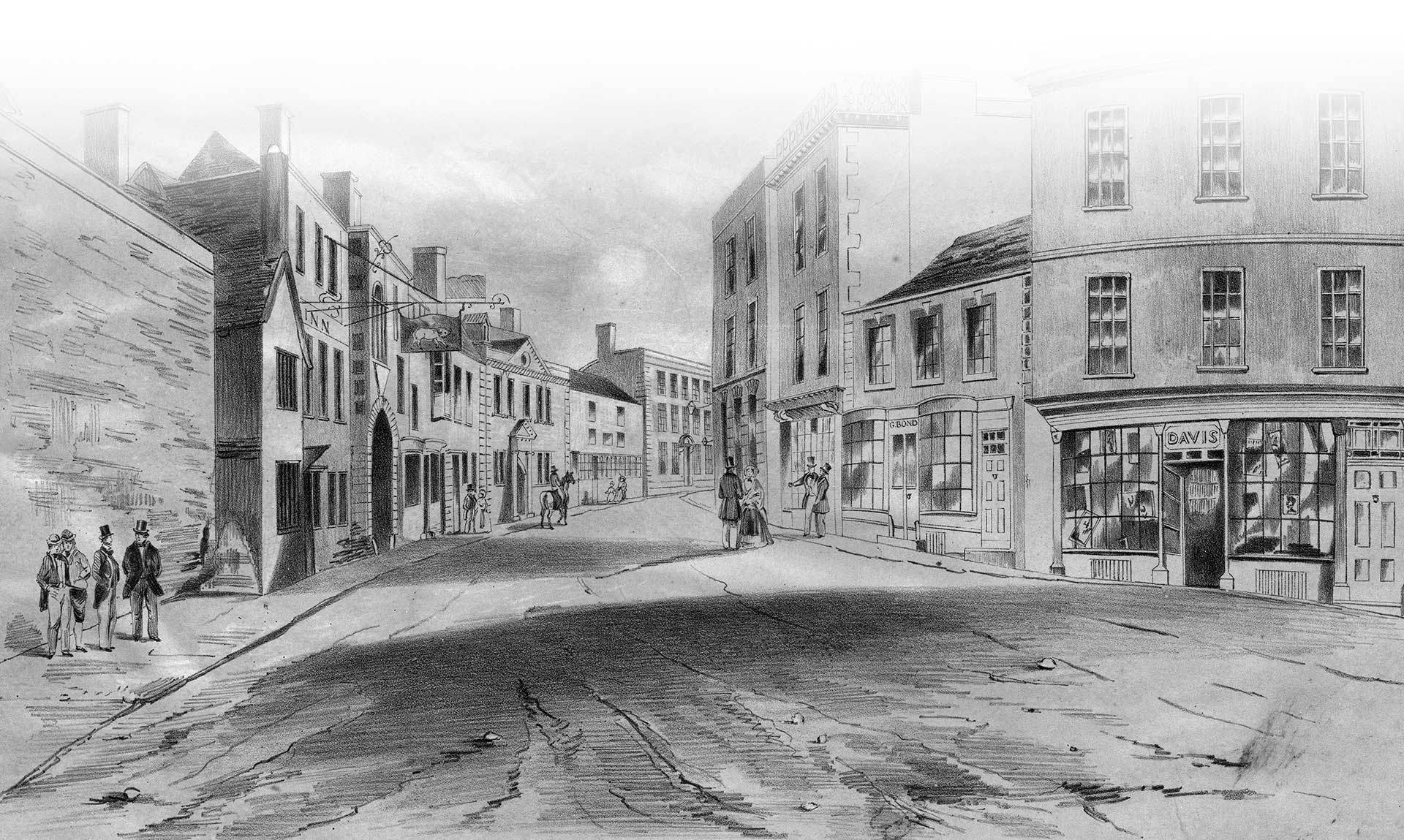History
Time Travelling
When you drive into Wincanton from the east, you see a wide street, lined with old houses, and spectacular views to the south across the Blackmore Vale. It’s quiet, with very little noisy through traffic, but plenty of independent shops, several pubs and the general atmosphere of a small country town.
Picture this scene 250 years ago – imagine the bustle as the London-bound horse-drawn coaches drag up the long, steep main street, stopping at one or other of the coaching inns, depositing passengers, well-dressed from inside the cabin, less affluent from the wind and rain-swept seats on the top. Wincanton was an important stop for coaches on the long journey from London to Exeter and Plymouth. At this time, there are estimated to have been a daily average of 80 people staying overnight in the many inns and ale-houses. There is a (probably apocryphal) suggestion that in the early 19th century, at the height of the coaching trade, there were more than 100 ale-houses. Some of these survive as private homes.
Go 2,000 years further back in time and travel the short distance to the Penselwood ridge. Look west from there and the scene would have been an ocean of woodland – the ancient Selwood Forest, stretching to the low-lying wetlands (now the Somerset Levels) from the chalk ridge which is the western edge of Cranborne Chase Area of Outstanding Natural Beauty.
Come back to the town centre and the 21st century, and you might bump into wizards swishing their gowns along the pavement, leather-clad warriors, elegant ladies and other exotics – characters from the late Sir Terry Pratchett’s Discworld novels. Wincanton is twinned with Ankh Morpork, a city state in the fantasy world.
So this is Wincanton – “a pleasant town by the Cale,” according to the Domesday Book. It has seen centuries of trade and travel, culminating now in the 2020s with fuel, food and hotel services for the busy A303 to the south west, known by locals as “the motorway” and by tourists as “the highway to the sun.”
It is a lovely, friendly, happily un-gentrified Somerset town, welcoming to visitors and new residents alike, whether they are Bosnian, Syrian or, now, Ukrainian refugees, or metropolitan incomers seeking a better quality of life, while still connected to the busy world.

